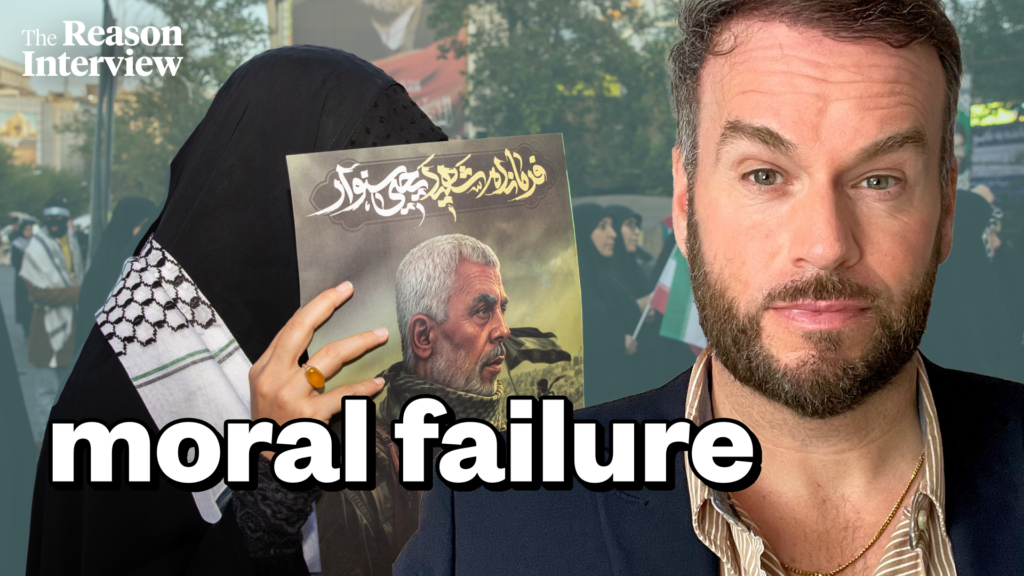Brendan O’Neill: The West’s Descent into Madness Following October 7
Brendan O’Neill, chief political writer for Spiked, addresses recent geopolitical events and shifts in political ideologies in an insightful conversation with Nick Gillespie from Reason during the annual Webathon. O’Neill’s latest book, “After the Pogrom: 7 October, Israel and the Crisis of Civilisation,” examines the fallout from the October 7 attacks by Hamas and their repercussions across Western society, especially in the UK and the US. He stresses that the response from many on the progressive left has been troubling, observing a swift shift from principles like “believe women” to supporting a group he characterizes as fascistic. This manipulation of narratives has sparked a broader debate about the roles of ideology, power, and morality in political discussions surrounding the Israeli-Palestinian conflict and beyond.
The conversation delves deeply into the nature of Hamas, which O’Neill describes as a religious extremist movement that vehemently rejects modernity. He elaborates on the implications of this rejection and its impact on contemporary Western values. Furthermore, O’Neill provocatively questions the notion of being anti-Zionist as a form of punk rebellion, emphasizing the complexities involved in discussing Israel’s identity. He critiques the portrayal of Israel as a white settler-colonialist state, contending that such a framing misses the historical and socio-political nuances of the region. A salient discussion point arises when O’Neill explores when the left began shifting its stance against Israel, reflecting on how political allegiances have transformed over time, particularly in light of progressive values and anti-colonial rhetoric.
As O’Neill examines the relationship between antisemitism and anti-capitalism, he argues that demonization of Israel and the characterization of Palestine as the omni-cause reflect a broader societal madness, where events like the formation of groups such as Queers for Palestine exemplify a troubling trend of ideologically driven activism that often oversimplifies complex international issues. He describes the post-October 7 progressivism as catastrophic, suggesting that the responses seen after the attacks have contributed to a larger crisis within progressive politics, diminishing the movement’s credibility and moral standing.
O’Neill also explores the implications of the October 7 attacks on the trajectory of ‘wokeness’ and the cultural conversations around morality and support for Israel. He contemplates how the West should engage with Israel’s ongoing military responses to threats and whether full support is warranted. Throughout this dialogue, O’Neill reflects on his personal political evolution, tracing his journey from a self-identified Trotskyist at the beginning of his career to a position where he aligns more closely with conservatives and libertarians in certain discussions. His enduring rallying cry remains focused on the balance of power—asserting that human advancement should focus on enhancing individual liberty while minimizing coercive social structures.
In a broader philosophical context, O’Neill assesses how the current landscape of gay liberation contrasts with contemporary movements around transgender rights. He suggests that today’s young activists exhibit a desire for institutional approval rather than grassroots advocacy, hinting at a fundamental shift in activism’s nature and objectives. This critique extends to how Marxist and Trotskyist thoughts have influenced his understanding of social dynamics, bringing a historical lens to current political debates. He posits that many critiques of Zionism in 1930s-40s Europe were steeped in a complex interplay of social and economic factors that contributed to the ideologies of the time.
Ultimately, the episodes discussed in O’Neill’s conversation serve as insightful commentaries on the shifting paradigms within politics, identity, and activism. As he grapples with the ramifications of the October 7 attacks and the ensuing responses, O’Neill raises critical questions about the future of progressive politics, the role of ideological purity, and the necessity of free expression in an increasingly polarized world. His insights invite deeper reflection on how societies can navigate the challenges of modernity while grappling with historical grievances, cultural identities, and the push for a more equitable future in a rapidly changing global landscape.
Share this content:












Post Comment